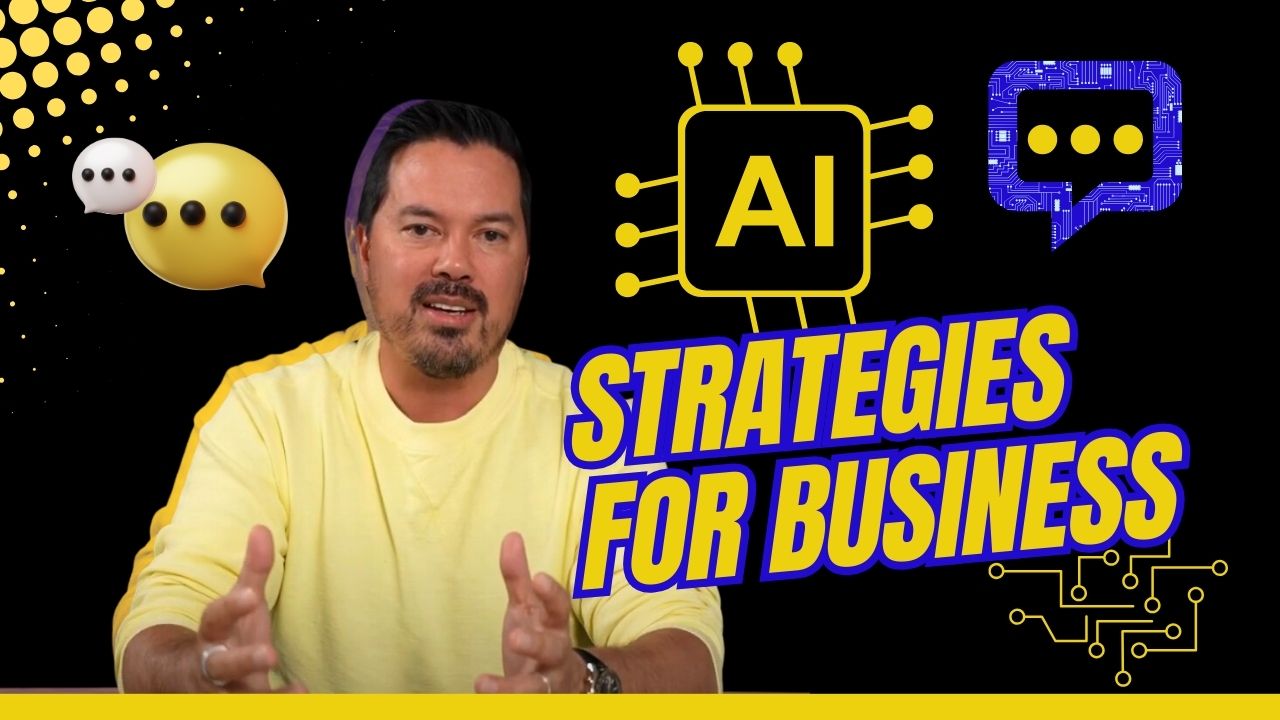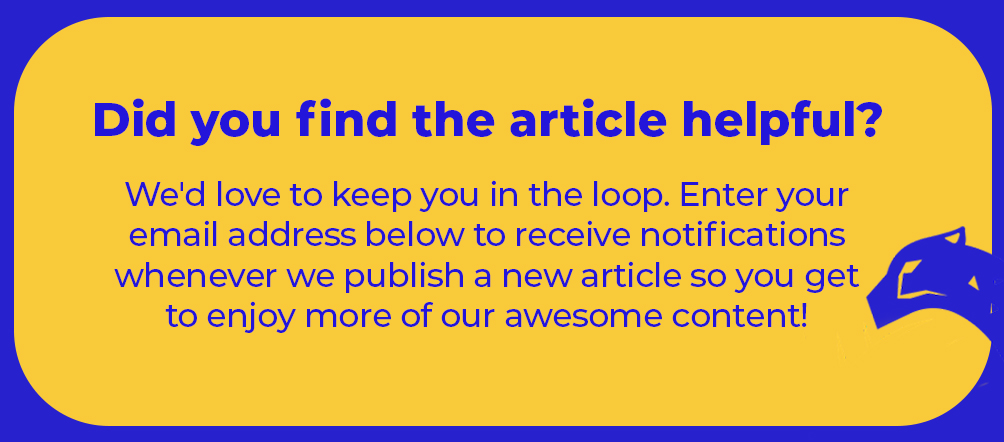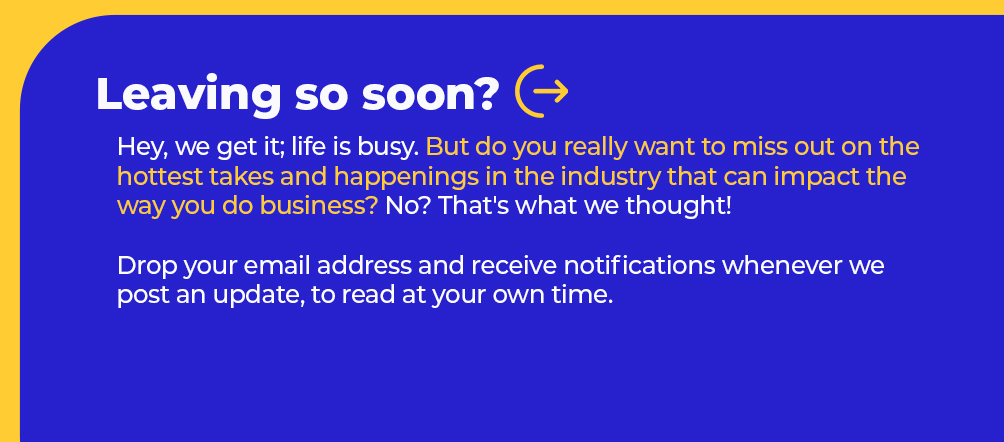The Current State of AI: How to Strategically Use AI for Business Today


Imagine a world where customer inquiries are resolved instantly, data insights are immediately accessible, and mundane tasks are seamlessly automated. This isn’t some far-off reality—it’s today’s business landscape, powered by AI.
In this episode of The Philippine Business Playbook, Bryan talks about how artificial intelligence continues to reshape industries as more and more companies are using its vast potential to improve operations, enhance customer experience, and unlock new growth opportunities.
AI for Data Analysis and Insights
One of AI’s most powerful applications is in data analysis. AI-driven analytics can uncover patterns and correlations within datasets, providing insights that human analysts might miss.
According to a recent Forbes survey, over half of businesses use AI for SEO tasks, such as keyword research. Search data, for instance, reveals consumer interests and common challenges, offering companies valuable insight for creating solutions that meet market demands.
Internally, AI can provide analysis on business performance by examining metrics related to recent initiatives like marketing campaigns, new product launches, or software updates. This enables leaders to adjust strategies in real time based on AI-backed data, making forecasting and trend analysis more accurate and reliable than ever.
AI Tools for Efficiency in Business Processes
AI tools expand employees’ capabilities, providing faster and better solutions for quick idea generation, content creation, and more. One great example of an AI tool that has gained much popularity is ChatGPT, which you can easily integrate within your business operations for faster and better employee outputs — whether it’s email composition, social media posts, or even video ads!
While AI tools offer valuable assistance, it’s crucial to handle them with care. Continuing to incorporate human oversight and management will ensure that the generated content meets your usual standards and avoids sounding robotic.
How AI Can Be Leveraged in Different Industries
1. Accounting
In accounting, AI’s capabilities streamline financial processes by reducing human error and increasing efficiency. AI algorithms can accurately project cash flow, categorize transactions, and reduce duplication errors, due to manual data entry, that may cost businesses significant sums.
For example, tools like Microsoft Excel now come equipped with AI capabilities, enhancing functions for formula generation, data categorization, and more, making it easier for employees to manage data-intensive tasks with precision.
With AI-driven financial tools, businesses are not only making their accounting departments more efficient but also gaining insights that guide more informed financial decisions.
2. Sales and Marketing
AI has revolutionized sales and marketing, transforming how companies understand and reach their audiences. With AI-powered tools, businesses can conduct in-depth market research, track consumer behavior and trends, and create content aligned with target audience preferences.
From generating graphics and copy to automating keyword research, creating video transcripts, and improving idea generation, AI enhances marketing workflows, allowing teams to go beyond what they can usually do. With faster turnaround times, companies can produce personalized and timely campaigns, making their marketing efforts more impactful and data-driven.
3. Customer Service
The customer service sector has seen notable improvements with AI’s growing capabilities. For example, AI-powered chatbots and virtual assistants can quickly handle routine inquiries, reducing response times from hours to seconds. AI’s contribution to customer support has allowed businesses to maintain high satisfaction rates and effectively manage a high volume of interactions with fewer resources.
But stay open and upfront with your customers that you’re using chatbots to manage customer expectations and reap these benefits.
4. Cybersecurity
As digital threats grow, AI has become indispensable in cybersecurity. AI monitors system activity, detects risks, and analyzes threats in real time, protecting businesses from potential breaches. AI can identify unusual login patterns or other indicators of unauthorized access, preventing data breaches before they occur.
By swiftly detecting irregularities, AI helps companies uphold security standards and maintain customer trust.
5. Human Resources
AI’s role in human resources is steadily increasing, particularly in talent acquisition and employee management. AI-driven recruitment tools can do the initial screening of the hundreds of candidate resumes and test answers recruiters regularly receive before they reach their human counterparts. They find keywords that match requirements, reducing the time recruiters spend reviewing applications.
AI also plays a significant role in managing employee data like attendance and performance, helping HR teams ensure timely and accurate handling of personnel-related information.
By automating these tasks, AI frees HR professionals to focus on nurturing company culture, developing employee engagement strategies, and improving the overall employee experience.
Looking Ahead: The Potential and Challenges of AI
Reflecting on AI’s rapid growth, the initial fear that AI would “take away jobs” has evolved into a broader understanding of its potential to enhance the workforce. While some roles may become less in demand, AI’s benefits extend across industries, allowing employees to take on more meaningful, creative roles.
AI is raising the bar for productivity and innovation, and although there may be winners and losers in this shift, the general impact on the workforce has been largely positive. The future of AI in business promises greater efficiency, insight, and innovation across sectors, underscoring the importance of embracing this technology to remain competitive.
…
As AI continues to evolve, its potential to drive business success becomes increasingly clear. AI isn’t just a trend; it’s here to stay, transforming the way we do business and opening doors to new opportunities. Now is the time for business leaders to embrace AI’s capabilities, setting the stage for continued growth and innovation.
For more insights into how business is done in the Philippines, subscribe to The Philippine Business Playbook on YouTube, Spotify, and Apple Podcasts.






